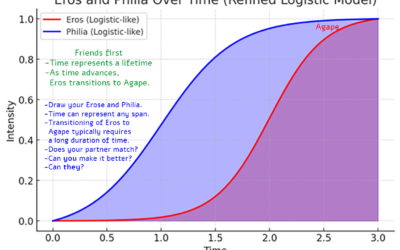Daniel Kahneman’s Folly
Some of what follows is sourced from Jason Zweig’s excellent article in The Wall Street Journal form March 14th, 2025.
Daniel Kahneman was a psychologist, a Nobel Prize winner in economics, and in reasonably good health at the age of 90 when he flew to Switzerland in March of 2024 to commit suicide with medical assistance.
Mr. Zweig artfully shared snippets of Dr. Kahneman’s last email, interspersed throughout his article, which added to the poignancy of his seemingly logical determination to end his life. The second to last snippet was the following:
I discovered after making the decision that I am not afraid of not existing, and that I think of death as going to sleep and not waking up. The last period has truly not been hard, except for witnessing the pain I caused others. So if you were inclined to be sorry for me, don’t be.
Given the intellectual giant Mr. Kahneman was, I can’t help but think he drew this morsel from Plato. I am fond of that portion of Plato’s Apology myself, not that I am as equally an intellectual giant as Mr. Kahneman. Still, I am a reader and have a memory, even if a poor one. So, let me share some additional morsels from the Apology (The Center for Hellenic Studies):
Let us think about it this way: there is plenty of reason to hope that death is something good [agathon]. I say this because death is one of two things: either it is a state of nothingness and utter unconsciousness for the person who has died, or, according to the sayings [legomena], there is some kind of a change [meta-bolē] that happens—a relocation [met-oikēsis] for the soul [psūkhē] from this place [topos] to another place [topos]. Now if you suppose that there is no consciousness, |40d but a sleep like the sleep of someone who sees nothing even in a dream, death will be a wondrous gain [kerdos]. For if a person were to select the night in which he slept without seeing anything even in a dream, and if he were to compare with this the other days and nights of his life, and then were to tell us how many days and nights he had passed in the course of his life in a better and more pleasant way than this one, I think that any person—I will not say a private individual [idiōtēs], but even the great king— |40e will not find many such days or nights, when compared with the others. Now if death is like this, I say that to die is a gain [kerdos]; for the sum total of time is then only a single night. But if death is the journey [apo-dēmiā] to another place [topos], and, if the sayings [legomena] are true [alēthē], that all the dead are over there [ekeî], then what good [agathon], O jurors, [dikastai], can be greater than this? |41a If, when someone arrives in the world of Hādēs, he is freed from those who call themselves jurors [dikastai] here, and finds the true [alētheîs] judges [dikastai] who are said to give judgment [dikazein] over there [ekeî]—Minos and Rhadamanthus and Aiakos and Triptolemos, and other demigods [hēmi-theoi] who were righteous [dikaioi] in their own life—that would not be a bad journey [apo-dēmiā], now would it? To make contact with Orpheus and Musaeus and Hesiod and Homer—who of you would not welcome such a great opportunity? Why, if these things are true [alēthē], let me die again and again.
…But let me interrupt. You see, the hour [hōrā] of departure has already arrived. So, now, we all go our ways—I to die, and you to live. And the question is, which one of us on either side is going toward something that is better? It is not clear, except to the god.
It is reported that Dr. Kahneman, born into the Jewish faith, lost his faith while still in religious school and described the moment as a sudden insight, and further stated that he didn’t believe in an afterlife, reincarnation, or anything mystical. From this, one would infer that Dr. Kahneman was an agnostic. It is also possible he was an atheist, which is as much a religion as anything else as it requires a belief in the absence of God. Perhaps, perhaps due to his advanced age and own faulty memory, he forgot Plato’s second option—a relocation of the soul from body and soul as one, incarnate, here, to the immaterial soul somewhere else.
Even polytheistic Plato believed in God, or more aptly perhaps, Gods, and I question whether or not Plato’s interpretation of death would be as sanguine in the case of suicide, which is a rejection of the gift of life from the Gods, or more aptly perhaps, God. Furthermore, such a logical, cold calculation of the reasonableness of death, as opposed to the impulsive passionate leap off a bridge or pulling of a trigger or swallowing of a handful of pills to end physical or psychological pain, strikes me as an even more severe rejection of God’s gift.
Atheism is something I find irritating for the reason that it requires belief. It strikes me as hubristic for one to actively profess belief in the non-existence of something that a majority of humanity believes so profoundly in. Why not just be agnostic and not believe in anything, and not profess that God does not exist? Who knows what Mr. Kahneman believed or not? From an interview with Max Raskin March 1,2022, Kahneman said:
“I was walking home, and I had the insight that maybe I could believe in God, but I could not believe in a God that cared whether or not I masturbate. That was a very sudden insight. That if I can’t imagine God caring about me, then we were irrelevant to each other, and it really didn’t matter whether he existed or not. And that was the end of the religion for me.”
The above reads more agnostic than atheistic, and I don’t know if Dr. Kahneman read Plato’s Apology, but ChatGPT says it is “quite likely that he was familiar with Apology or at least its central themes.”
It is his reference to death as going to sleep and his equanimity relative to it (similar to Plato) that causes me to think he erred by not accounting for Plato’s belief in a higher power, or by not considering the possibility that he (Kahneman) was wrong. What if there is a God, and how would He respond to the rejection of His gift? Is being a good person and doing good works good enough for an agnostic to enter the Heavenly Kingdom? Does an atheist, in professing disbelief in God, gain entrance? I don’t know, but if it is enough, I wouldn’t think the Heavenly Kingdom would be available to those rejecting even the potential thereof in such a fashion as Mr. Kahneman has done. I would think rather that they would end up somewhere else if there is a God, even if Zeus and all the rest.




0 Comments